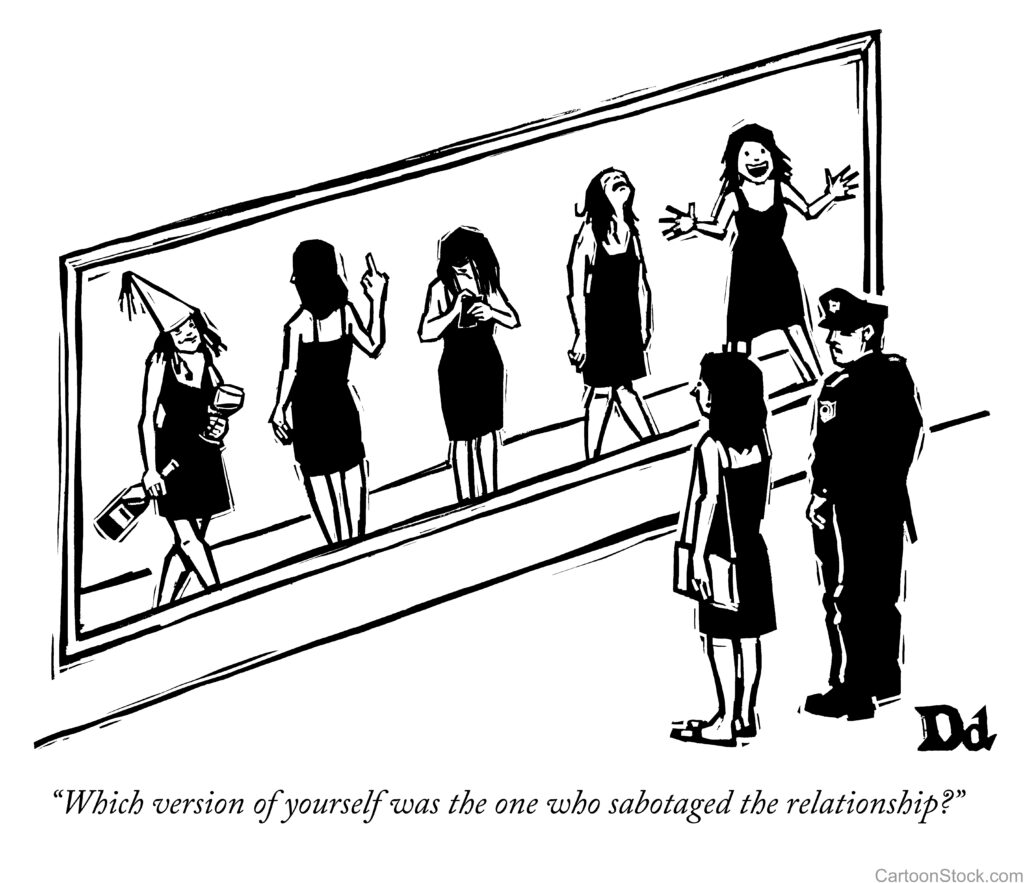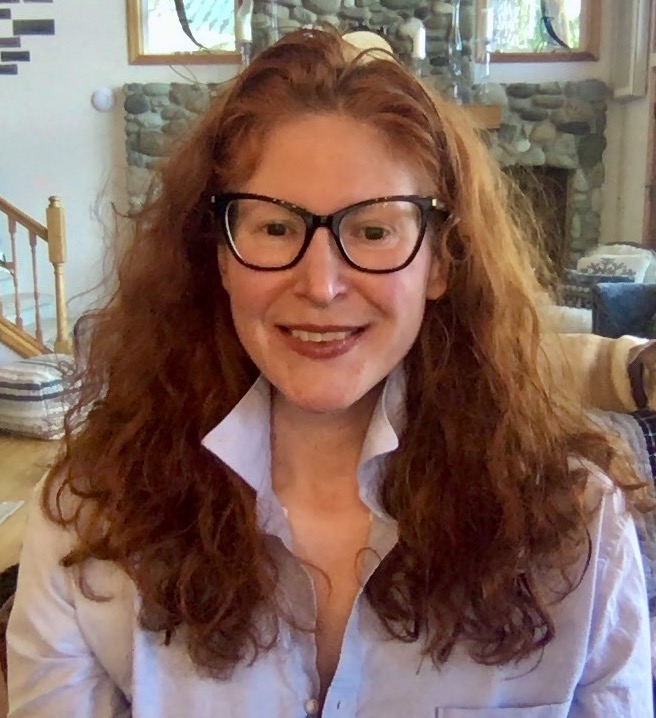 All kidding aside, you can relate, right? As many clients can attest, narcissists and borderlines sabotage relationships. No matter how hard (or harder) you try to love and help them, their destructiveness to self and others persists. For those who haven’t figured it out yet, love does not conquer all.
All kidding aside, you can relate, right? As many clients can attest, narcissists and borderlines sabotage relationships. No matter how hard (or harder) you try to love and help them, their destructiveness to self and others persists. For those who haven’t figured it out yet, love does not conquer all.
Furthermore, “love” (i.e., codependency-driven people pleasing-rescuer tendencies), doesn’t fix personality disorders. No matter how hard you try or wish to make it so. Why do narcissists and borderlines sabotage relationships?
Not to be glib, but it’s just what they do. Ironically, narcissists, borderlines and histrionics are desperate for love. Many lie, cheat, manipulate, hurt others and pretend to be people they’re not in order to get love. Yet, once they secure love and attachment, they begin to systematically destroy it.
In some ways, I almost feel sorry for them. Almost. Then, I’m reminded of the pain and damage they perpetrate upon others. What’s more, narcissists and borderlines don’t take responsibility for their abusive behaviors. Nor do they feel remorse. Typically, they convince themselves the people they hurt deserve it.
Why does a BPD, NPD, HPD person feel their victims “deserve” to be hurt? Most commonly, it’s due to feeling rejection or disappointment. Alternately, they’re angry about losing control of you or their victim narrative. It could be any number of other triggers, however, these are the most common.
Why else do narcissists and borderlines sabotage relationships?
While narcissists, borderlines and histrionics crave love, attention and admiration, it’s a one way street for them. Or rather, a one-way street paved with double standards. Meaning, they want to receive love, but they don’t reciprocate it. At least, not in an emotionally mature adult fashion.
In this respect, these individuals are adult toddlers, ‘tweens and/or teens. These individuals demand unconditional love and, in return, are highly conditional and transactional. Put another way, actual parent-child relationships aren’t mutual and equal. It isn’t healthy for them to be.
Yet, that’s what most of these individuals mean by unconditional love. They expect nothing less than 100% of your attention, love, care and resources 100% of the time. However, don’t you dare expect the same from them in return. If you do, then you’re being selfish.
Conversely, they’re not being selfish in their one-sided unreasonable expectations of you. This is a good example of how narcissists and borderlines sabotage relationships. Meaning, unless you enjoy being a doormat, this kind of hypocrisy wears thin eventually. This disordered belief is one of their biggest mindfucks.
Remember also, narcissists, borderlines and histrionics don’t love, they love bomb. Confusing the two usually leads to a great deal of pain and heartache. Pretending to be someone they’re not in order to dupe you into falling in love with them is another act of sabotage.
The high functioning ones play act only long enough to create an attachment in their victims. First, it’s impossible to maintain the illusion forever. Second, they don’t want to. To quote a former client’s ex, “Do you have any idea how hard it was for me to be nice to you?!”
Other ways narcissists and borderlines sabotage relationships include:
- Lack of empathy. (No, no, no! Borderlines and narcissists are not “empaths.”)
- Refusal to take responsibility for themselves.
- Equating how much abuse a partner will suffer as a measure of their partner’s “love.”
- Pathological lying.
- Hypocritical beliefs, attitudes and behaviors. For example, the battle cry of the NPD/BPD, “But it’s different when I do it!“
- Triangulation with third parties.
- Physical violence.
- Emotional abuse. For example, name calling, degrading and demeaning insults and other forms of contempt.
- Financial abuse. For example, refusing to work and contribute and/or spending the money as quickly as it’s made.
- Reproductive abuse. For example, lying about being on birth control and/or lying about paternity.
- Infidelity.
- Competing fears of abandonment and engulfment (Gunderson & Lyons-Ruth, 2008). This is largely what drives the human yo-yo, push-pull “I love you! I hate you! Don’t Leave Me!” behavior.
All of these things serve to destroy trust, intimacy, affection and attraction. In other words, relationship sabotage. Regardless, don’t expect the borderline or narcissist to take ownership of any of their destructive behaviors. No matter how it ends or who ends it, it’ll be your fault.
And then they’re off to their next “soulmate,” and you’re left to pick up the pieces of your life and heal. Frankly, you’re getting the better deal. You can find support and heal, so that you make healthier relationship choices in the future. The narcissist, borderline or histrionic? Just Google Amber Heard.
Gunderson, J. and Lyons-Ruth, K. (2008). BPD’s interpersonal hypersensitivity phenotype: A gene-environment developmental model. Journal of Personality Disorders, Feb 22 (1): 22-41.
 Counseling, Consulting and Coaching with Dr. Tara J. Palmatier, PsyD
Counseling, Consulting and Coaching with Dr. Tara J. Palmatier, PsyD
Dr. Tara J. Palmatier, PsyD helps individuals with relationship and codependency issues via telephone or Skype. Since 2009, she’s specialized in helping men and women break free of abusive relationships, cope with the stress of ongoing abuse and heal from the trauma. She combines practical advice, emotional support and goal-oriented outcomes. If you’d like to work with Dr. Palmatier, please visit the Schedule a Session page or you can email her directly at shrink4men@gmail.com.
 Want to Say Goodbye to Crazy? Buy it HERE.
Want to Say Goodbye to Crazy? Buy it HERE.